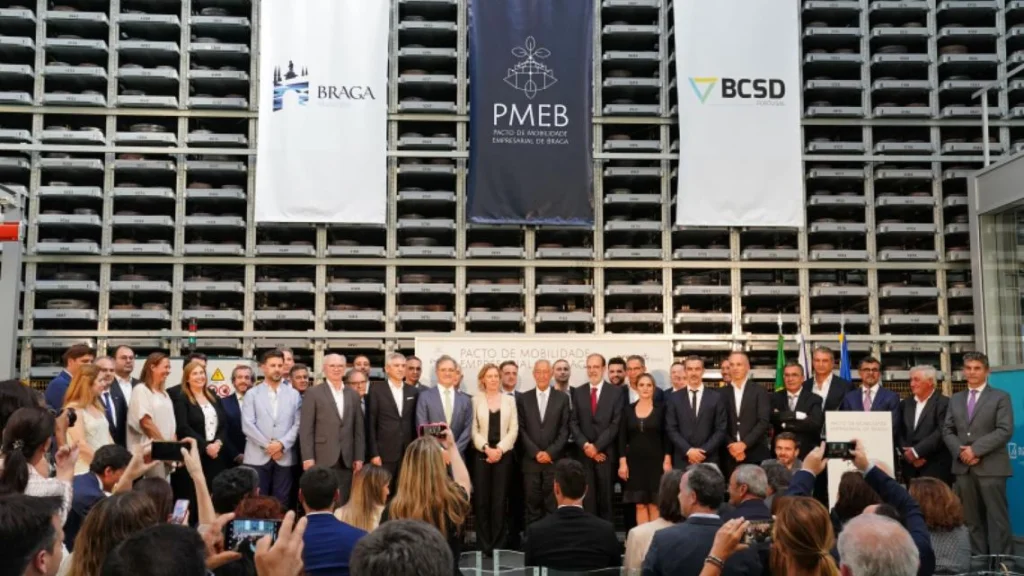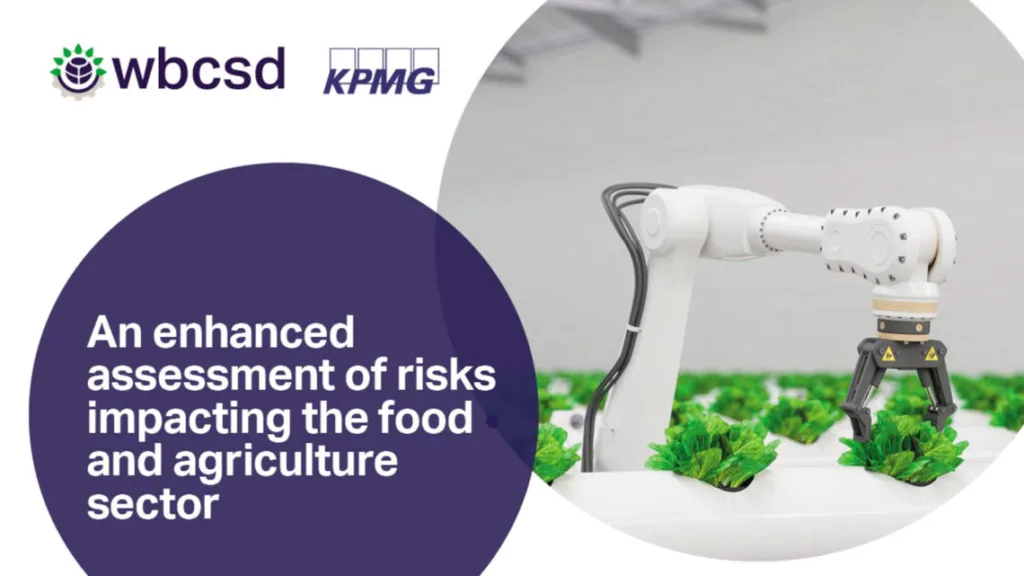Authors
Communications
Last week marked the 48th annual World Economic Forum in Davos, bringing together 3,000 of the world’s most powerful leaders in government, business and civil society.
This year’s theme was “Creating a shared future in a fractured world” where discussions ranged from climate change and economic development, to political polarization and the importance of science.
The general tone of the 2018 Forum seemed more positive than many of the other the major meetings in 2017. Participants were especially hopeful about the status of business and economic growth over the course of 2018.
During the three-day event, WBCSD hosted 6 events with over 300 attendees, giving our members the platform to represent the voice of forward-thinking companies at the Forum, and across various side events happening in Davos.
Each WBCSD event helped demonstrate the business commitment to progress and acceleration in the field of sustainability.
Business commitment: Launching Factor10
To kick off WBCSD’s involvement in Davos, over 30 companies from 16 sectors, representing USD $ 1.3 trillion in combined revenue publicly announced their plans to implement and scale the circular economy through WBCSD’s new circular economy project, Factor10.
Nearly 20 C-Suite business representatives from 14 major companies launched Factor10 at our high- level breakfast on 23 January, just ahead of the Forum’s opening plenary.
Andreas Fibig, Chairman and CEO of International Flavors & Fragrances Inc. and Chair of Program Board for Circular Economy and Energy at WBCSD said, “I am thrilled to be collaborating with forward-thinking companies who are making a positive difference in the world. By leveraging our passion and combined expertise through the Factor 10 Initiative, we have even greater opportunities to transform our companies, our industries, and our communities.”
“We’re reaching a critical mass,” said Andrea Brown, Director of Circular Economy at WBCSD, “energy is high, and companies are committed.”
Making progress: Enterprise Risk Management
The buzz continued on into the afternoon, where at the center of town, WBCSD welcomed over 60 business, government and academic leaders for an interactive discussion focused on accelerating the integration of environmental, social and governance (ESG) risks into enterprise risk management (ERM), business decision-making and capital allocation.
At the event, the Committee of Sponsoring Organizations of the Treadway Commission (COSO) and WBCSD highlighted their efforts to jointly develop a first-of-its-kind guidance to help organizations worldwide respond to the increasing prevalence and severity of environmental, social and governance (ESG) related risks, ranging from extreme weather events to product safety recalls.
According to Sandra Richtermeyer, a COSO board member, “70% of the world’s companies already use the existing COSO Enterprise Risk Management framework. So, WBCSD’s efforts to supplement the Guidance with ESG risks will be a significant development to advance better business decision-making.”
“When you have a better grasp on your risk, you can make better business decisions,” said Mr. Bakker in his opening speech. “With this work, we’re going to drastically change corporate governance.”
Better regulation will take time, he said, but the work WBCSD and COSO are doing to change risk management frameworks is something that can have a massive impact – and fast.
This particular event signified a movement from focusing on engaging Chief Sustainability Officers and Chief Executive Officers to including and prioritizing Chief Financial Officers (CFOs) in the discussion.
“If fiduciary duty is going to radically change, and we’re going to integrate the true costs, true profits, true value of our businesses, we need to get the CFOs involved,” said Mr. Bakker. “This needs to be front and center stage at Davos next year.”
WBCSD closed the Risk event with a powerful message: You never know what will come tomorrow. Practice Enterprise Risk Management, protect your business and build a prosperous future.
Financial Services and the SDGs
Later in the week, WBCSD, JPMorgan Chase & Co, the Female Quotient and the Business and Sustainable Development Commission also cohosted a panel discussion around “Mobilizing capital for a better world.” The event showcased the financial services industry’s role in advancing sustainability and discussed ways in which the international development community can collaborate to mobilize new capital sources to help achieve the Sustainable Development Goals (SDGs).
The discussions featured introductory remarks by Peter Bakker, followed by a panel with Lord Mark Malloch-Brown, Chair of the Business and Sustainable Development Commission and Daniel Pinto, CEO of JPMorgan Chase & Co Corporate and Investment Bank. Leaders from business, civil society and government attended.
Over all, panelists agreed that the SDGs will not be achieved without business leadership – but that businesses will move further, faster if the financial system rewards them for making better decisions. There are enough opportunities for everyone – participants agreed – as the SDGs represent trillions of dollars if achieved properly.
At the event, the Business and Sustainable Development Commission released its Blended Finance Report, which was developed through a multi-stakeholder effort over the last year to create a roadmap for deploying blended finance effectively.
Picking up the pace: Food and Land Use (FOLU) Coalition
On Thursday morning, WBCSD also co-hosted a high-level breakfast with over 20 government and business leaders, each committed to picking up the pace on fixing global food and land use systems.
The general sense in the room was that food and land uses issues are finally moving into the spotlight, and that there’s a real interest in and need for working with local governments to deliver tangible solutions on the ground.
But the issue continues to be complicated.
Johan Rockström, executive director of the Stockholm Resilience Center said, “The food sector issue is more complicated than climate, so collaboration will be essential.” The leaders in the room were optimistic about the prospect of working together under the Food and Land-Use (FOLU) Coalition to make changes across the globe.
Gerda Verburg, coordinator of the Scaling Up Nutrition (SUN) movement said, “It’s great to see this isn’t a top-down initiative and that there’s a real effort to help on the ground in developing countries and beyond.”
As with climate, the role of business continues to be important – but all sectors of society need to work together. Participants agreed that communities have an important role to play moving forward, and that it’s critical to focus on production and consumption practices.
Gunhild Stordalen, Founder and President of the EAT Foundation, said, “There’s still a need for advocacy to put the role of diets in addressing food and land use issues higher on the agenda.” Diet is the number- one cause of disease, and there’s still a great deal of advocacy work to be done in order to move diet issues into the spotlight.
Overall, the event demonstrated that there’s a key group of businesses, governments and civil society leaders driving the change to push food and land use issues onto the global stage.
“It’s all very promising, but we still have a lot of work to do to get food to the top of the agenda and get action on the ground,” said Alison Cairns, Director of FReSH at WBCSD.
Dietary Shifts
As part of the larger food systems transformation discussion during the WEF annual meeting in Davos, DSM, WBCSD, EAT and the Global Alliance for Improved Nutrition (GAIN) also organized a panel on “The Need for Transformational Dietary Shifts: How to Nudge Consumer Preference towards Healthy and Sustainable Diets.” Also with FRESH members Unilever, BCG speaking on the panel.
This was THE food-related event in Davos looking at the consumer’s role and perspective. There were over 100 attendees, with representatives from business, academia, civil society groups and government.
The panel created insights into what’s necessary to help shift consumption behaviors towards healthier sustainable choices.
For example, participants agreed that where some see people as consumers at the end of the value chain, the conclusion of the panel is that they are actually at the beginning of the food value system. This means more focus should be placed on them.
As such, it’ll be important for all sectors of society to integrate the human dimensions of food – emotion, pleasure, sharing – into what is generally an overly technical discussion on “food systems.” The idea is that this will help consumers understand and recognize the importance of demand shift to make a sustainable change possible.
In addition, participants agreed that healthy, sustainable food choices need to be made available, affordable but certainly also aspirational to become the new normal mainstream choice. In order to reach these goals, the session closed with various proposals for how to make healthy and sustainable food the aspirational choice.
Certainly the food discussion is providing fuel-for-thought among many of the world’s top leaders.
Accelerating the Zero Emission Mobility Revolution
In addition, Tex Gunning, the of CEO LeasePlan; Nigel Topping, CEO of We Mean Business Coalition and Peter Bakker hosted a private dinner that brought together leading figures from the automotive, energy
and infrastructure industries to share insights on the latest zero emission mobility technologies.
The event further illustrated the critical role that decarbonizing transport will play in addressing the climate challenge and how digitalization, renewables, and shared mobility are driving the change. WBCSD looks forward to continuing work in this area in 2018 and beyond.
Year 2018 and beyond
As 2018 kicks off, there is no illusion about the amount of work to be done to speed the transition to a sustainable world.
The world is polarized, and it’s fractured – but global leaders are finding a pathway forward. Last week in Davos clearly illustrated that companies are committed, making progress and picking up the pace on finding solutions.
WBCSD will continue providing a platform for the voice of business at the highest levels – as evidenced over the course of last week at this prestigious global event.
Stay tuned this year for additional developments in business, sustainability and the journey to Vision 2050 – where over 9 billion people are living well, within the boundaries of the planet by mid-century.
WBCSD news articles and insights may be republished in accordance with the Creative Commons Attribution-NonCommercial-NoDerivatives 4.0 International Public License, and in accordance with our Privacy Policy. All Content must be featured with due credits.
Outline
Related
Content

City of Braga, Portugal, unveils new Corporate Mobility Pact
11 August, 2022

WBCSD offers support for countries to transform their markets towards a net-zero built environment
31 March, 2022

An enhanced assessment of risks impacting the food and agriculture sector
15 February, 2022
